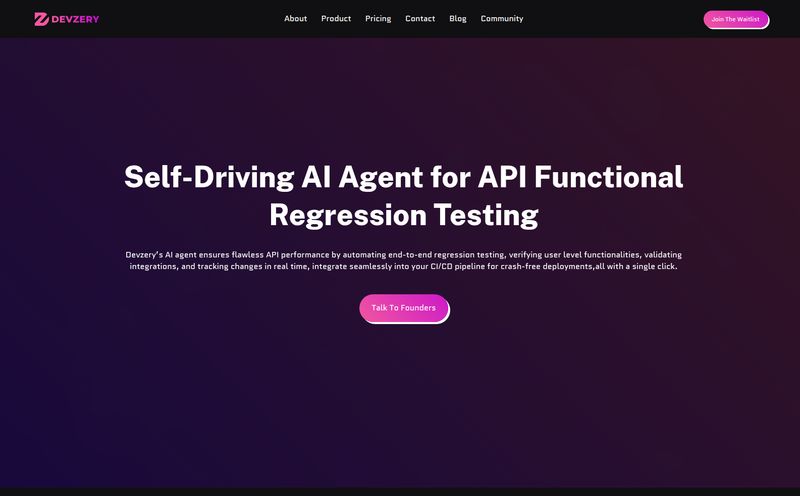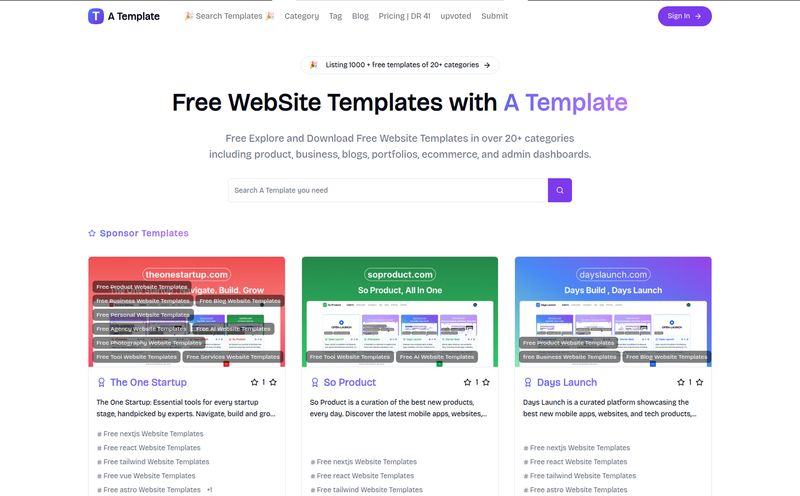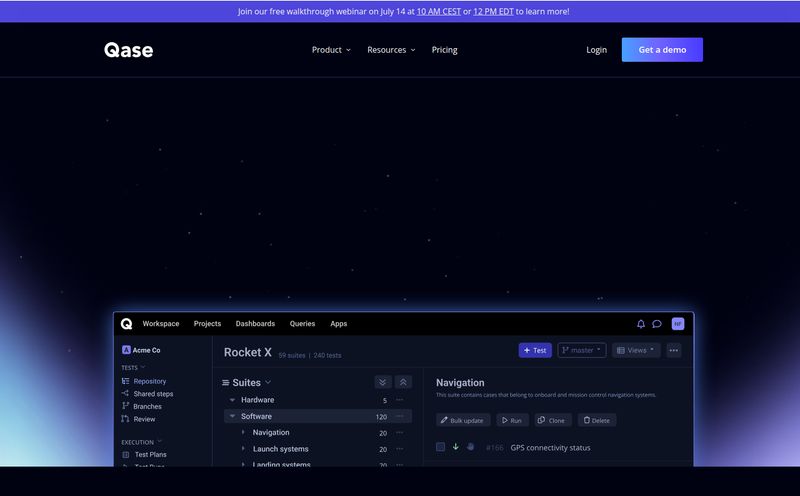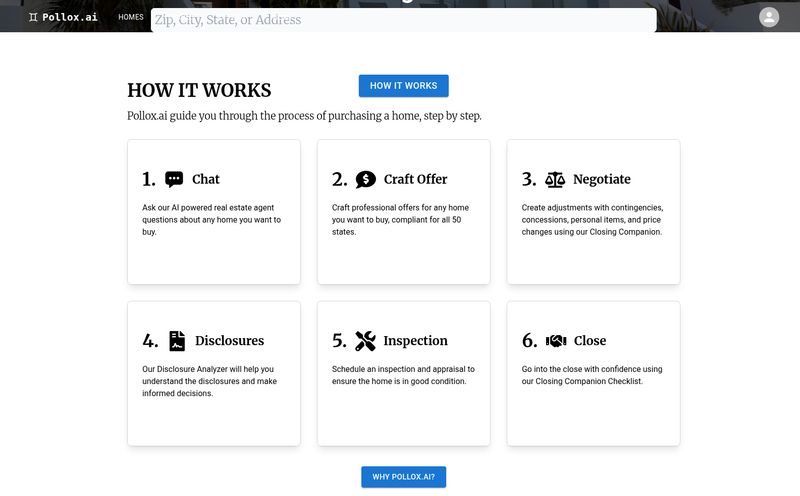We've all been there. Stuck in a chatbot loop, screaming "HUMAN!" at our screens, only to be met with a cheerful, "I'm sorry, I don't understand that. Here are some articles you might like." It's enough to make you want to throw your laptop out the window. For years, the promise of AI-powered customer support has felt like a cruel joke.
The market is absolutely flooded with AI tools right now, each promising to revolutionize your business. But most of them require a team of developers, a PhD in machine learning, or a budget the size of a small country. So when a platform like Quickchat AI comes along waving a big "no-code" flag, my inner skeptic, honed by years of chasing SEO trends and traffic, raises an eyebrow. Can you really build a genuinely smart, on-brand AI agent without writing a single line of code? I decided to take a look.
What Exactly is Quickchat AI?
At its core, Quickchat AI is a playground for building custom AI helpers for your business. Think of it less like a rigid, pre-programmed chatbot and more like hiring a new employee that you can train on your company’s specific knowledge. It’s a no-code platform, which means people like you and me—marketers, support managers, entrepreneurs—can build and deploy these agents without begging for developer time. It's all powered by the same kind of tech behind OpenAI, so it has some serious brains under the hood.
The whole idea is to take your existing knowledge base—all those help docs, product specs, and FAQs you've spent ages writing—and turn it into an interactive, conversational resource. So, instead of a customer digging through your website, they can just ask a question and get a real answer. An answer that's actually helpful. What a concept.
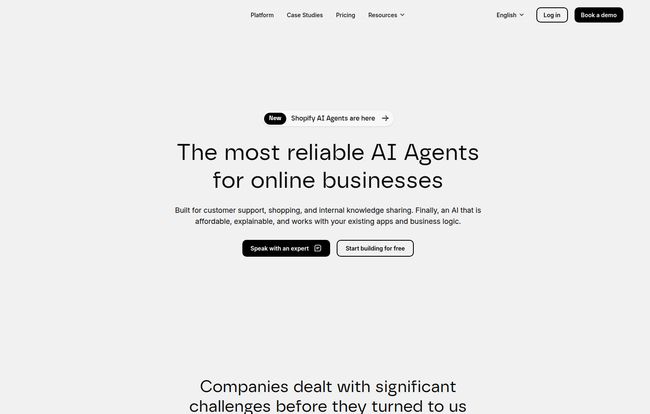
Visit Quickchat AI
The Core Features That Actually Matter
A feature list is just a feature list until you see how it applies to your actual workflow. I've seen a million platforms with a laundry list of 'cool' things that are completely impractical. Here's what stood out to me about Quickchat AI.
Building Your AI Without a Computer Science Degree
The main event is the no-code builder. This is the whole selling point. You connect your knowledge sources (like a website, documents, or a Zendesk library) and the AI ingests it. From there, you can design the conversation flow, set the personality, and define what it can and can't talk about. It's designed for the business user, not the engineer. This is a huge step in making powerful AI accessible to more than just the tech giants.
Keeping Your AI On-Brand and On-Message
One of my biggest fears with AI is it going rogue and saying something wild that damages the brand. Quickchat seems to get this. They have features for deep customization of the web widget to match your site's look and feel, which is table stakes. More importantly, they talk about built-in guardrails. This is critical. You can constrain the AI to only answer questions based on the information you've provided. No more random, off-topic conversations that could lead to a PR nightmare. It also has a neat feature called “Message Sources,” which cites where it got an answer from. This is fantastic for both transparency with the user and for you to debug and refine its knowledge base.
From Chatter to Actionable Data
Here's where a simple chatbot becomes a business tool. An AI agent is useless if it's just a black box of conversations. Quickchat provides conversation analytics and insights. You can see what your customers are asking about most, where they're getting stuck, and identify gaps in your knowledge base. This is gold for any product or marketing team. It also allows for an automated handoff to a human agent. The AI can handle the simple stuff, and when things get tricky, it seamlessly passes the conversation to a real person. This isn't about replacing humans; it's about freeing them up to handle the high-value problems.
Let's Talk Money: A Breakdown of Quickchat AI Pricing
Alright, let's get to the part everyone really cares about. The price. Navigating SaaS pricing can feel like a jungle, but Quickchat AI lays it out pretty clearly, which I appreciate. They have tiers for everyone from a curious startup to a full-blown enterprise.
| Plan | Price (Monthly) | Key Features & Limits | My Take |
|---|---|---|---|
| Free | $0 | 20 Messages, 1 Knowledge Base, 1 Active AI, 1 User | A true free trial. Perfect for kicking the tires and seeing if it works for you, but not a long-term solution. |
| Basic | $34 | 750 Messages, 10 Knowledge Bases, 2 Active AI, 1 User, Chat Sentiment Analysis | Good for a solo founder or a very small business with low traffic. The message limit is still a bit tight. |
| Essential | $97 | 2,000 Messages, 50 Knowledge Bases, 5 Active AI, 2 Users, Remove branding | This feels like the sweet spot for most small to medium-sized businesses. A decent message volume and the ability to add a team member. |
| Professional | $372 | 10,000 Messages, 250 Knowledge Bases, 10 Active AI, 10 Users, API Access | For established businesses where the AI agent is becoming a core part of the support or sales process. API access is the big prize here. |
| Business | $666 | 25,000 Messages, 2000 Knowledge Bases, 25 Active AI, 25 Users, Advanced Integrations | This is for larger teams and high-traffic sites. You're serious about AI and integrating it deeply into your workflows. |
| Custom | $0.69 / conversation | Unlimited everything, Dedicated Account Manager, Priority Support / SLA | The full enterprise experience. If you need this, you're not reading my blog for advice, you're talking directly to their sales team. |
The jump from the Free to Basic plan is reasonable, but the real value seems to start with the Essential plan. Getting rid of the Quickchat branding and adding another user makes it feel much more like your tool.
The Good, The Bad, and The Maybe
No tool is perfect, right? After digging in, here's my unfiltered take. The good stuff is pretty obvious. Making this level of AI accessible without code is a massive win for smaller teams. The deep customisation to match brand voice and the guardrails for safety are huge pluses. I really can't overstate how great the message source citation is—it builds trust and makes troubleshooting so much easier.
On the other side of the coin, while it's "no-code," it isn't "no-thought." To get the most out of it, you'll still need a basic understanding of how conversational AI works to truly dial in the settings for a perfect experience. Some might also find themselves climbing the pricing tiers faster than expected if their traffic grows. And there's always a potential reliance on the underlying platforms, in this case, a likely connection to Google Cloud Platform and OpenAI, which is something to be aware of for data governance.
So Who Is Quickchat AI Actually For?
So, who should drop what they're doing and sign up? In my opinion, this isn't for the casual blogger who just needs a simple contact form. Quickchat AI shines for specific use cases:
- SaaS Companies: Imagine automating onboarding questions and providing 24/7 technical support for Tier 1 issues. This is a perfect fit.
- E-commerce Stores: Answering endless questions about shipping, returns, and product specs can be handled by an AI, freeing up your team for complex sales inquiries.
- Businesses with a Deep Knowledge Base: If you have a rich library of content, help docs, or internal wikis, Quickchat can turn that static library into a dynamic, searchable conversation partner.
- Marketing Agencies: This is a powerful tool to offer clients who need to improve their customer engagement but lack the technical resources to build a custom solution.
If you fall into one of those buckets, the potential ROI is pretty clear. You're not just adding a widget; you're building a system to improve efficiency and customer satisfaction.
The Final Word
In a world of over-hyped AI promises, Quickchat AI feels refreshingly practical. It's a robust platform that successfully lowers the barrier to entry for creating genuinely useful, custom AI agents. It gives businesses control over their brand identity and a clear path to turn customer conversations into valuable data.
Is it a magic wand that will solve all your problems? Of course not. But it’s a powerful, well-designed tool that puts enterprise-level AI within reach of the rest of us. If you've been curious about adding an AI helper to your site but have been scared off by the complexity, Quickchat AI is definitely worth a look. The free plan is sitting right there, it costs you nothing to see if it lives up to the hype for yourself.
Frequently Asked Questions
1. Do I really need to know how to code to use Quickchat AI?
Nope. That's the main appeal. It's a no-code platform. You'll be working with visual interfaces to connect data sources and design conversations, not writing Python scripts.
2. Can I integrate Quickchat AI with other tools I use?
Yes, on the higher-tier plans. The Professional and Business plans offer API access, which allows you to connect Quickchat AI with your CRM, helpdesk software, or other business systems for more complex automations.
3. Is Quickchat AI just another skin for ChatGPT?
Not exactly. While it's powered by large language models like those from OpenAI, Quickchat AI is a full platform built around it. It provides the crucial business tools: knowledge base management, guardrails, analytics, branding, and integrations. You're not just getting the engine; you're getting the whole car.
4. How does the knowledge base feature work?
You provide the AI with your existing content—like website pages, PDFs, or by connecting to a helpdesk like Zendesk. The AI "studies" this material and uses it as its single source of truth to answer user questions, ensuring the answers are accurate and specific to your business.
5. Is the free plan good enough to run my business on?
Honestly, no. The free plan is best viewed as an extended test drive. With a limit of only 20 messages per month, it's designed to let you explore the features and build a proof-of-concept, not for a live production environment.
Reference and Sources
- Quickchat AI Official Website
- Quickchat AI Pricing Page
- Forbes: The Unstoppable Rise Of No-Code And Low-Code Platforms
- MarketsandMarkets: Chatbot Market Growth Trends
